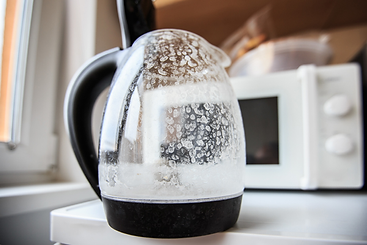What is hard water?
Understanding Hard Water and Its Impacts.
Have you ever wondered about the concept of "hard water" and its significance? Hard water refers to water that has a high mineral content, predominantly calcium and magnesium, along with traces of other minerals.
Water hardness varies depending on the concentration of these minerals. It occurs naturally as minerals accumulate during the water cycle. Consequently, both well water and city water can contain hardness, with varying levels from one area to another within the same region.
While hard water is technically safe for consumption, cleaning, and washing, it can lead to costly issues over time, such as:
-
Ugly stains in sinks and tubs
-
Increased water bills due to the strain on water appliances
-
Expenses associated with replacing clothes and linens damaged by hard water



Signs of Hard Water
Recognizing the signs of hard water can help you take appropriate measures. Look out for the following indications:
-
White, chalky residue or spots on dishes and in the dishwasher
-
Clothes and linens feel rough and appear dull
-
Scale buildup on faucets and stubborn stains on white porcelain
-
Dry skin and flat hair due to incomplete rinsing of soap
-
Low water pressure from showers and faucets caused by clogged pipes
-
Excessive soap usage and the need for fabric softeners

Degree of Hardness Grains per Gallon (gpg) ppm (or mg/L)
Soft <1.0 <17.0
Slightly Hard 1.0-3.5 17.1-60
Moderately Hard 3.5-7.0 60-120
Hard 7.0-10.5 120-180
Very Hard >10.5 >180
Living Water Systems - Your Solution to Hard Water
At Living Water, we specialize in addressing and treating the effects of hard water with our custom-designed whole-home water systems. Our team offers expert consultation tailored to your specific water needs. Schedule a free in-home water test today to discover how we can help you combat hard water-related challenges effectively. Say goodbye to the detrimental effects of hard water and experience the benefits of clean, purified water.
